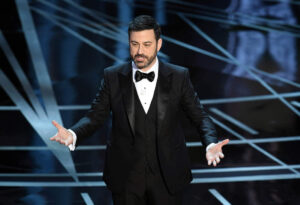by The Cowl Editor on March 2, 2017
Arts & Entertainment

By Ryan Cox `18
A&E Staff
We live in a world of constant political opinions. Media outlets are saturated with political rhetoric and analysis, and this often spills over into the various branches of the entertainment industry. While there is nothing wrong with musicians or actors having political opinions like the rest of the American people, an entertainer’s job is to entertain, not to push a political agenda.
People buy concert tickets or watch TV shows to lose themselves in the music or the story and forget about life for one song or one episode. Using the medium as a sort of soapbox to project one’s own political views or push a political agenda abuses that power. In an interview with The Boot, country singer Miranda Lambert echoed this, saying, “I don’t want to ever use my career or this thing that I’ve built as a platform to sway people to my direction…I don’t ever want to push my opinion on someone because I don’t want them pushing their opinion on me.”
This leads to last Sunday’s Academy Awards. In a recent article from Polygon titled “Why Jimmy Kimmel Needs to Make the Oscars Political,” author Julia Alexander urges Kimmel to turn his monologue into a political critique, writing, “Having more than 30 million people listening to you means hosts should do more than just entertain…In between the glamor, red carpet, and golden statues, there’s a 10-minute block for real discussion to happen, and Kimmel is wasting it by poking fun lightheartedly at celebrities.”
Audiences do not need to be force-fed another political opinion each time the opportunity presents itself. Especially given the frequency of such commentary in other outlets, a three-hour reprieve is a blessing, and it should stay that way. The public does not watch the Oscars to listen to Kimmel’s political thoughts, and it would be selfish to think that was the case. It places the spotlight on a single person as if the audience was there for them, rather than for a celebration of a year’s worth of achievements. The Academy Awards is about showcasing the best of Hollywood this year, not politics.
So what is the right time and place for entertainers to voice their opinions? An extreme example might be Ashton Kutcher, who last month spoke before the Senate Foreign Relations Committee against human sex trafficking. Kutcher is the founder and chairman of Thorn, an organization which fights “predatory behavior…and [protects] vulnerable children,” according to its Twitter page. Kutcher spoke as a representative of a social action organization, rather than as a celebrity, and did so without trying to draw attention from the tabloids. Social media is another viable option.
In short, there is a time and place for celebrities to speak out about their opinions and political issues. The stage, or the screen is not it, particularly when it changes the occasion from a lighthearted one to something more divisive.